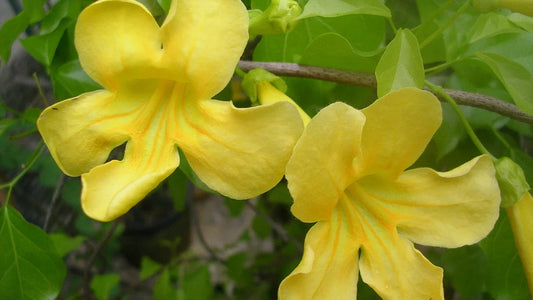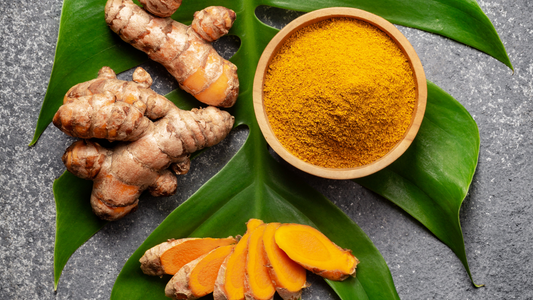Natural Immunity Boosting Remedies for Allergies

There are many natural immune boosting remedies you can take to help get you through any allergy season. Allergies are a common chronic condition in Australia. In 2010, approximately 4.1 million or about 20% of the population suffered with at least one allergy.*
Whilst, you may first think of a nut allergy, an allergy can include other substances as well. Some allergenic substances or allergies may include food, insects, animals, dust and chemicals. Some allergies are life threatening which cause an immunological anaphylactic response and this is a medical emergency.
Here are some handy tips and remedies to help support your immune system and keep your allergies at bay:
Rosemary
Rosemary is a European herb known for its culinary use and aroma. However, rosemary has been long used in Western Herbal Medicine for health ailments and conditions. One active ingredient in rosemary, rosmarinic acid has been shown to help reduce the inflammatory response and exert is the antioxidant activity by suppressing certain white blood cells and allergic antibodies.
Vitamin C
Vitamin C maybe a household product for the common cold or flu, however, it has other powerful actions on immune health too. Vitamin C can reduce free radical damage to your body and it also supports immune system function if you are experiencing allergies.
Stinging nettle
Stinging nettle is a wild European weed. If brushed up against its fine prickly hairs it can give you an itchy, stinging rash commonly known as nettle rash. However, just as it can quickly give you a rash, it can also appease it as well. Boiled leaves can be consumed as a tea to help relieve what it has caused! Stinging nettle is very high in minerals and nutrients including vitamin C and iron. It has an anti-inflammatory action and can help to provide support for allergies.
Albizia lebbeck (Powder puff tree)
This tree is native to Indochina and is also found in Northern Australia. It has long been used in Ayurvedic Medicine for respiratory health conditions. It also has a long history in many Traditional Medicine paradigms to help support the immune system in those suffering from allergies including hay fever.
Omega-3 Fatty acids
Omega-3 fatty acids from fish oil have been a long time favourite for its anti-inflammatory action. But how does it help allergies specifically? When an allergy takes hold, our immune cells are over-activated. Omega-3 fatty acids help to regulate and decrease inflammatory cell production.
Probiotics
Beneficial bacteria are widely known to help support immune system health. Although, you may think they only reside in the gut, they are actually present inside and outside of us. If prone to allergies, then always consider your gut health as 70-80% of your immune system cells live in your digestive system. These friendly bacteria need to be looked after and taking a regular probiotic during or before allergy season may assist your immune system response.
Consider some of these natural immune-boosting remedies, before your allergy sets in!
Reference:
www.allergy.org.au
Venkastesh, P et.al, 2010 Anti-allergic activity of standardised extra if Albizia lebbeck with reference to catechin as a phytomarker, Immunopharmacology and Immunotoxicology, 32(2):272-6
Whilst, you may first think of a nut allergy, an allergy can include other substances as well. Some allergenic substances or allergies may include food, insects, animals, dust and chemicals. Some allergies are life threatening which cause an immunological anaphylactic response and this is a medical emergency.
Here are some handy tips and remedies to help support your immune system and keep your allergies at bay:
Rosemary
Rosemary is a European herb known for its culinary use and aroma. However, rosemary has been long used in Western Herbal Medicine for health ailments and conditions. One active ingredient in rosemary, rosmarinic acid has been shown to help reduce the inflammatory response and exert is the antioxidant activity by suppressing certain white blood cells and allergic antibodies.
Vitamin C
Vitamin C maybe a household product for the common cold or flu, however, it has other powerful actions on immune health too. Vitamin C can reduce free radical damage to your body and it also supports immune system function if you are experiencing allergies.
Stinging nettle
Stinging nettle is a wild European weed. If brushed up against its fine prickly hairs it can give you an itchy, stinging rash commonly known as nettle rash. However, just as it can quickly give you a rash, it can also appease it as well. Boiled leaves can be consumed as a tea to help relieve what it has caused! Stinging nettle is very high in minerals and nutrients including vitamin C and iron. It has an anti-inflammatory action and can help to provide support for allergies.
Albizia lebbeck (Powder puff tree)
This tree is native to Indochina and is also found in Northern Australia. It has long been used in Ayurvedic Medicine for respiratory health conditions. It also has a long history in many Traditional Medicine paradigms to help support the immune system in those suffering from allergies including hay fever.
Omega-3 Fatty acids
Omega-3 fatty acids from fish oil have been a long time favourite for its anti-inflammatory action. But how does it help allergies specifically? When an allergy takes hold, our immune cells are over-activated. Omega-3 fatty acids help to regulate and decrease inflammatory cell production.
Probiotics
Beneficial bacteria are widely known to help support immune system health. Although, you may think they only reside in the gut, they are actually present inside and outside of us. If prone to allergies, then always consider your gut health as 70-80% of your immune system cells live in your digestive system. These friendly bacteria need to be looked after and taking a regular probiotic during or before allergy season may assist your immune system response.
Consider some of these natural immune-boosting remedies, before your allergy sets in!
Reference:
www.allergy.org.au
Venkastesh, P et.al, 2010 Anti-allergic activity of standardised extra if Albizia lebbeck with reference to catechin as a phytomarker, Immunopharmacology and Immunotoxicology, 32(2):272-6



